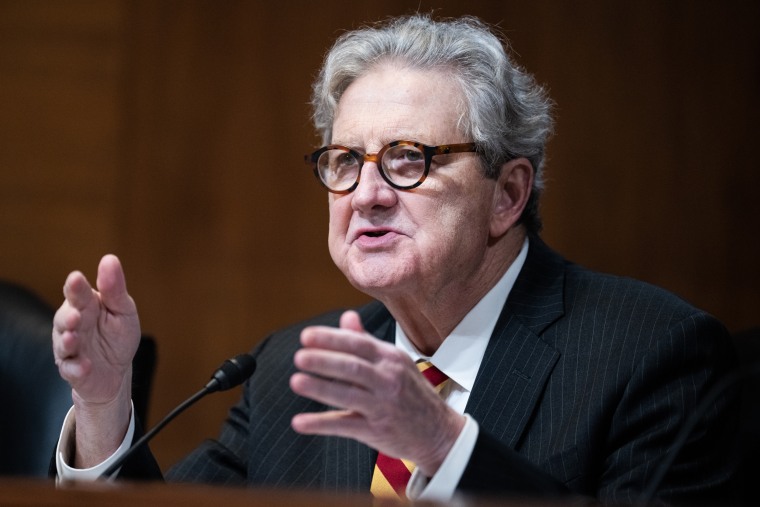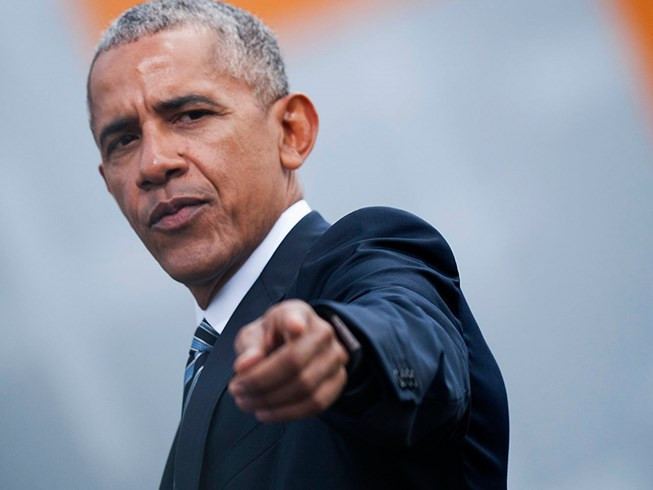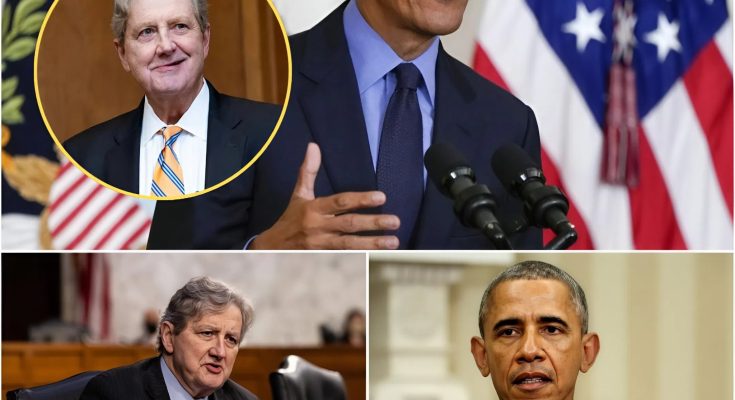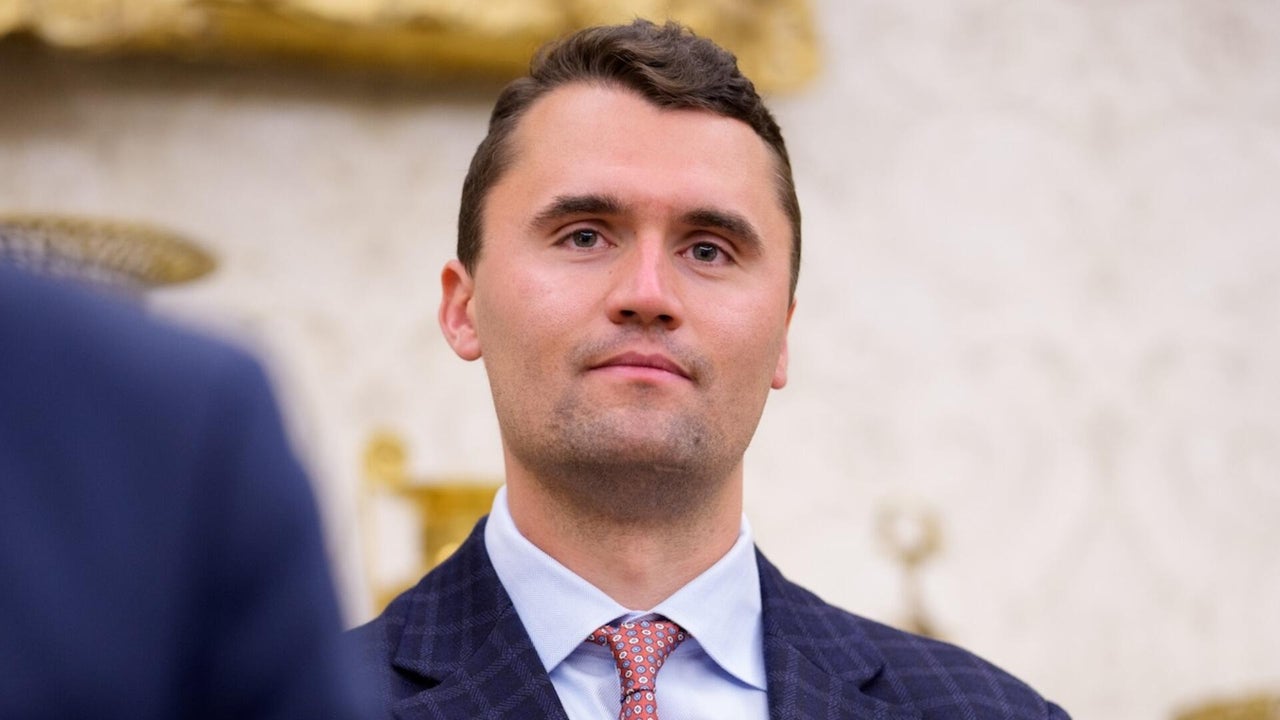OBAMA GOES NUTS After Sen. Kennedy REVEALS Foundation Fraud! Senator Kennedy just dropped a bombshell that rocked Washington — exposing alleged financial irregularities inside the Obama Foundation. What happened next? Barack Obama’s furious reaction was caught on camera and stunned the entire room.
Washington D.C. has seen countless heated hearings, but few have rattled the halls of power quite like Senator John Kennedy’s recent confrontation over alleged irregularities involving nonprofit foundations and their funding oversight. In a session that began quietly, Kennedy’s sharp questions and cutting remarks quickly turned the atmosphere electric, leaving reporters, staffers, and viewers stunned.
Though Kennedy did not accuse anyone directly of wrongdoing, his demand for transparency reignited long-standing questions about how large foundations — including the Obama Foundation — manage, report, and spend charitable funds.

By the time the hearing ended, social media was ablaze, hashtags were trending, and networks were dissecting every word. Supporters hailed Kennedy’s performance as a masterclass in accountability; critics dismissed it as grandstanding. Yet one fact was undeniable: his intervention had shaken the complacency of Washington’s establishment.
The Context: A Routine Hearing Turns Explosive
The session, initially scheduled as a standard financial oversight meeting, was expected to pass quietly. Lawmakers were there to review updates on transparency measures for charitable organizations, tax reporting, and the effectiveness of federal oversight.
However, Senator Kennedy’s line of questioning took the discussion in a dramatic direction. Citing documents, public filings, and open-source reports, he began probing deeper into how large-scale nonprofit organizations manage their funds — including how donations are distributed, what administrative costs are incurred, and how foreign contributions are monitored.
Observers noted that his tone was not accusatory but determined. “This isn’t about politics,” Kennedy said during the exchange. “It’s about accountability — and making sure every dollar meant for the public good actually serves the public good.”

The room fell silent as he pressed for details, demanding clarity on expenditures, partnerships, and the internal auditing systems that govern these massive institutions.
The Obama Foundation Under the Spotlight
Among the entities referenced during the discussion was the Obama Foundation, a nonprofit known for its global youth leadership programs, civic initiatives, and community engagement efforts. The foundation has long enjoyed a positive public image, emphasizing transparency, impact reports, and measurable progress on education and equality projects.
Yet, Kennedy’s remarks thrust the organization back into public discussion, as he requested further details on its financial reporting practices and oversight mechanisms.
While no evidence of misconduct was presented, the senator’s pointed questions raised broader issues about how powerful foundations operate — particularly those tied to former political figures.
“People deserve to know that when they give money to a cause, that money reaches its intended destination,” Kennedy said. “No one is above transparency.”
The Exchange That Captured America’s Attention
Eyewitnesses described the moment as tense and riveting. Kennedy leaned forward, papers in hand, challenging the panel on whether federal oversight of foundations remains adequate. His questions came rapid-fire:
-
How are large foundations audited?
-
Who ensures the independence of their board members?
-
Are international contributions reviewed under U.S. transparency laws?
Each question drew murmurs across the room. Some panelists appeared flustered; others scrambled for supporting data. By the end of the exchange, reporters had already begun drafting headlines.
Moments later, clips of Kennedy’s speech were trending on social media platforms under tags like #TransparencyNow and #FoundationHearing. Within hours, millions had watched the footage, and pundits were debating its implications on television.
The Aftermath: Media Frenzy and Political Reactions
News outlets from across the political spectrum covered the hearing extensively. Conservative commentators praised Kennedy’s “courage to ask the uncomfortable questions.” Progressive analysts, meanwhile, argued that the exchange represented yet another example of political theater designed to generate headlines.

Yet, even among critics, there was consensus on one point: the senator’s performance had reignited a national conversation about nonprofit transparency.
In subsequent interviews, Kennedy maintained a measured tone, emphasizing that his intention was not to target individuals but to strengthen trust in public institutions. “Charitable foundations play a vital role in society,” he explained. “But that trust depends on openness and integrity.”
The Obama Foundation, for its part, responded through a spokesperson, reaffirming its commitment to transparency and publishing its financial statements online annually. “We welcome oversight and accountability,” the statement read. “Our mission is to serve communities with honesty and clarity.”
The Bigger Picture: Why Transparency Matters
Kennedy’s questions, while pointed, tap into a broader issue that transcends party lines: public confidence in nonprofit organizations.
Charities and foundations collectively manage billions of dollars in donations every year. They are tasked with addressing pressing global challenges — from education and poverty to climate change and healthcare. Yet, public skepticism grows when financial or operational details remain opaque.
Transparency, experts argue, is not just a legal requirement but a moral imperative. “Every nonprofit should operate under the assumption that sunlight is the best disinfectant,” said Dr. Lisa Harrington, a public policy professor at Georgetown University. “When donors and citizens can see how funds are used, trust flourishes.”
Expert Reactions: Auditing and Oversight Under Review
The debate has also prompted renewed discussion among financial and legal experts about the adequacy of existing oversight mechanisms.
-
Dr. Samuel Trent, a nonprofit finance specialist, noted that while foundations are required to disclose annual reports, “many filings are technical and inaccessible to the public.”
-
Legal analyst Maria Chen pointed out that “increased public access to simplified summaries could help restore faith in the charitable sector.”
-
Former IRS official David Morales added, “Senator Kennedy’s questioning highlights a real issue: ensuring that large nonprofits maintain transparency not only in form but in substance.”
In the wake of the hearing, several advocacy groups have begun calling for updated regulations to ensure clarity in how charitable organizations report their expenditures.
The Digital Storm: Social Media Divides
As with most major political moments, the internet became a battleground of opinions.
Supporters of Kennedy flooded social media with clips of his questioning, praising his bluntness and integrity. “He’s saying what everyone’s been thinking,” wrote one user on X (formerly Twitter). “Too many organizations get a free pass.”
Opponents, however, accused the senator of grandstanding. “This isn’t about accountability,” one commenter posted. “It’s about political theater and media headlines.”
Despite differing opinions, engagement levels were sky-high. Influencers, journalists, and academics joined the debate, turning a niche policy discussion into a trending national conversation.
Transparency vs. Partisanship
Perhaps the most fascinating aspect of the controversy is how it straddles the line between genuine governance and political performance.
Kennedy’s questioning fits within a long tradition of senators using hearings to draw attention to systemic issues — from consumer protection to civil liberties. Yet, critics warn that the spectacle of confrontation can sometimes overshadow the substance.
Still, even skeptics concede that the senator’s inquiries served a useful purpose: drawing attention to how complex and opaque nonprofit financial systems can be, even when operating with good intentions.
“Whether or not one agrees with Kennedy’s approach,” said political analyst Aaron Blake, “he’s opened a necessary conversation about transparency. That’s healthy for democracy.”
Calls for Reform
In the days following the hearing, lawmakers from both parties signaled interest in revisiting nonprofit reporting standards. While there is no suggestion of wrongdoing by any specific organization, policymakers are exploring reforms to ensure greater public understanding of how donations are used.
Potential measures include:
-
Simplified public reports accessible online.
-
Mandatory third-party audits for foundations above certain asset thresholds.
-
Real-time transparency dashboards tracking donation allocations.
Advocacy groups applauded these ideas as pragmatic steps toward restoring public confidence. “Trust in charitable institutions is the backbone of civil society,” noted the National Accountability Forum. “Reform ensures that every dollar truly serves the public interest.”
Lessons in Leadership and Rhetoric
Beyond policy, Kennedy’s performance underscored his skill as a communicator. His mixture of humor, blunt questioning, and Southern charm has long been his trademark in Senate hearings.
“Senator Kennedy has a rare ability to disarm his audience while making serious points,” said journalist Mark Dalton. “That combination makes his message resonate.”
Even critics acknowledged the effectiveness of his delivery. While the substance of his claims remains debated, his rhetorical impact was undeniable.
The Broader Message: Accountability Is Nonpartisan
Ultimately, the controversy surrounding Kennedy’s remarks transcends party labels. Transparency and integrity are universal values. The idea that powerful institutions — whether governmental or nonprofit — must be open to scrutiny lies at the heart of democratic accountability.
“Public trust is fragile,” said ethics expert Dr. Renee Matthews. “Restoring it requires not only laws but cultural change — a renewed commitment to truth and openness.”
Kennedy’s fiery exchange, regardless of political spin, has reminded Americans that oversight is not about scoring points. It’s about ensuring that systems designed to serve the public actually do so.
Conclusion: A Debate That Won’t Fade Soon
The dust may settle in Washington, but the echoes of this hearing will linger. Senator Kennedy’s remarks have not only sparked controversy but also compelled a nation to revisit fundamental questions about transparency, accountability, and trust.
As lawmakers consider new reforms and advocacy groups push for stronger oversight, the takeaway is clear: Americans expect honesty — from their leaders, from their charities, and from the institutions that shape public life.
Whether viewed as bold truth-telling or political theater, Kennedy’s intervention achieved what few hearings ever do: it got the country talking, questioning, and demanding answers.
In the end, that may be the most powerful form of accountability of all.







